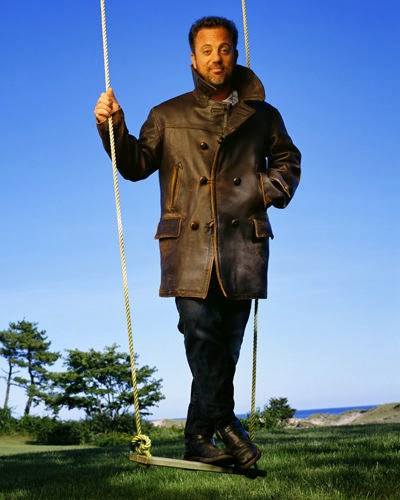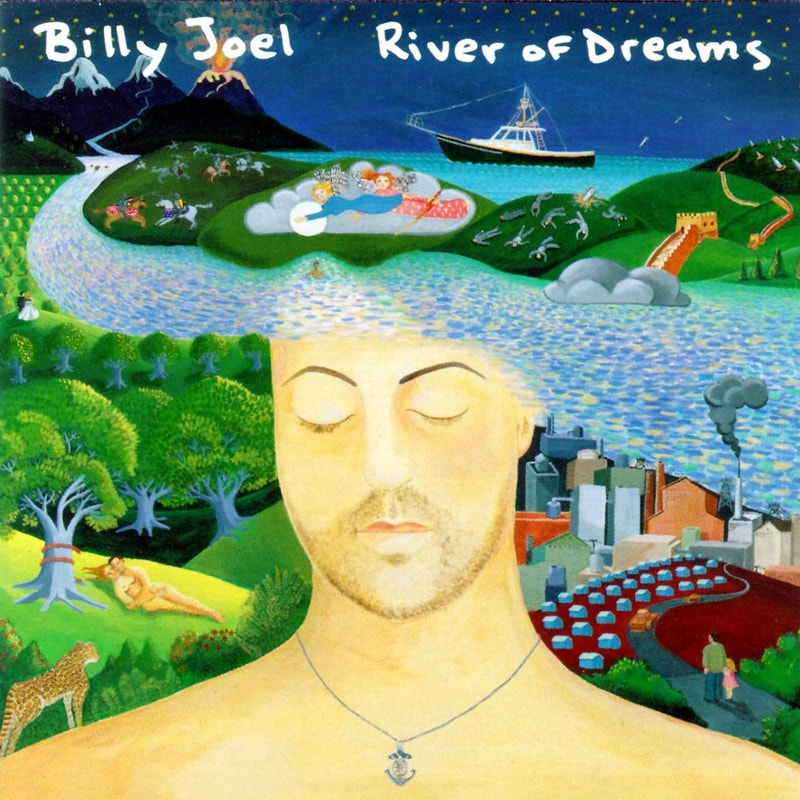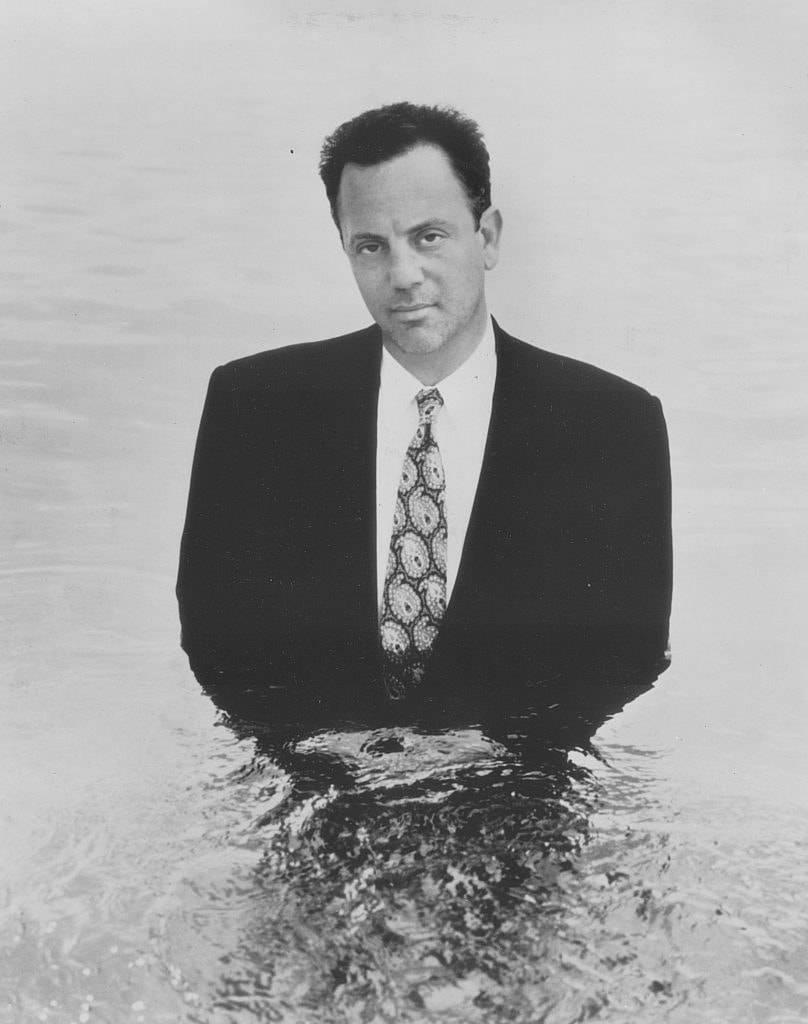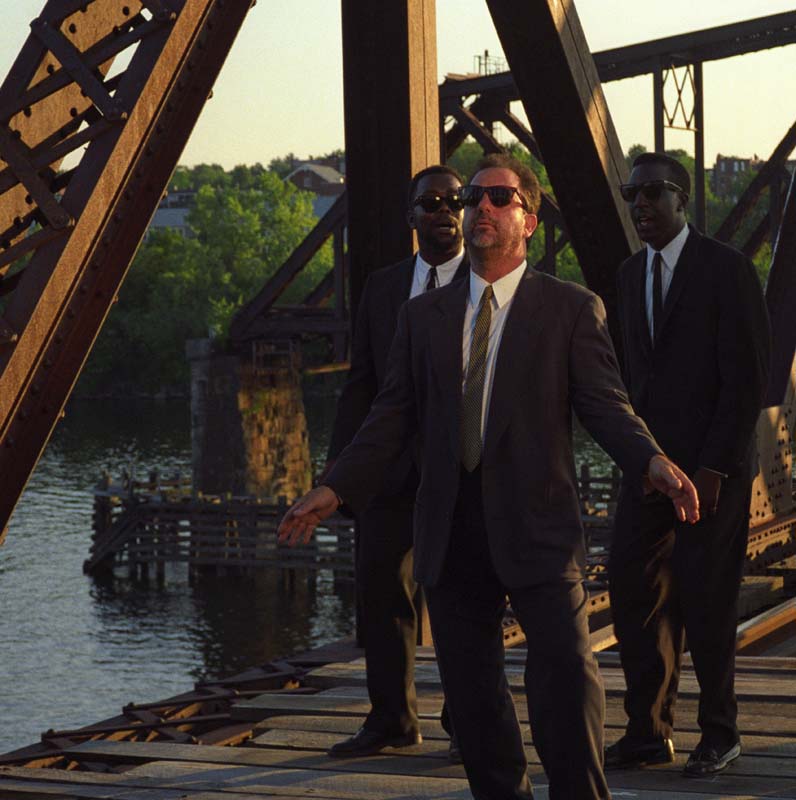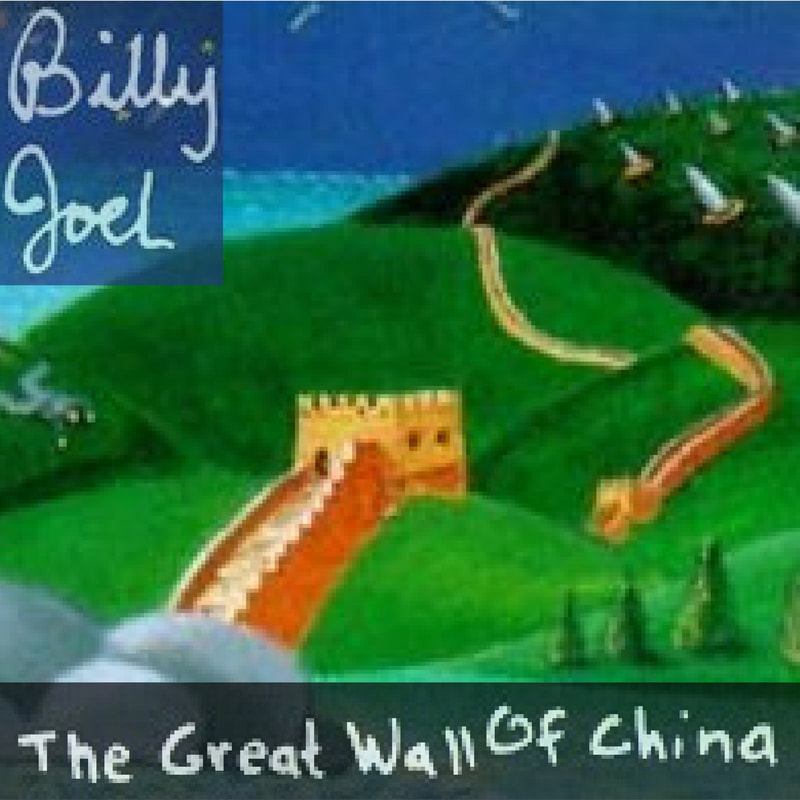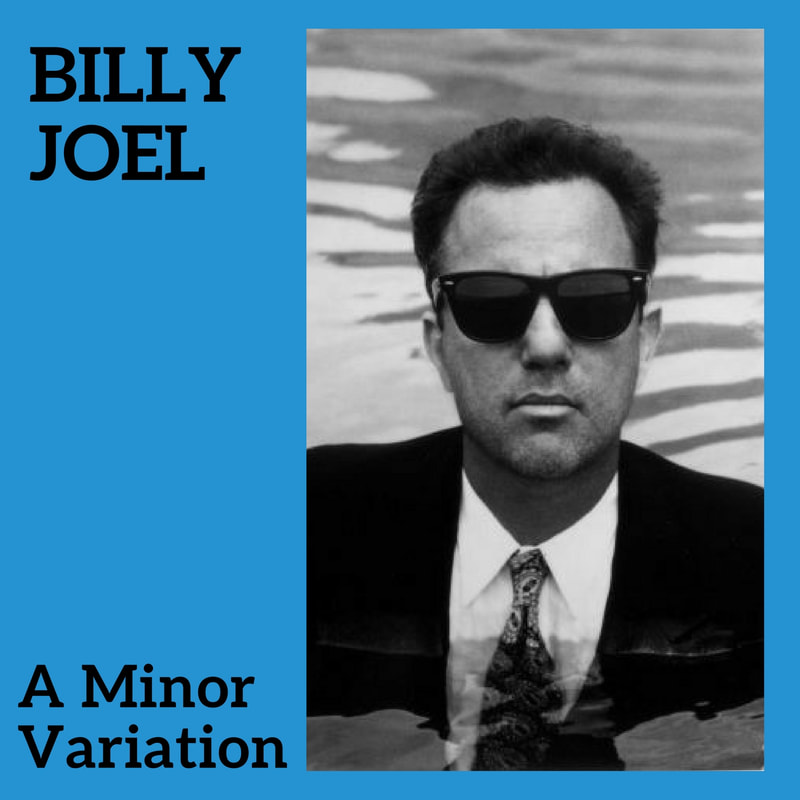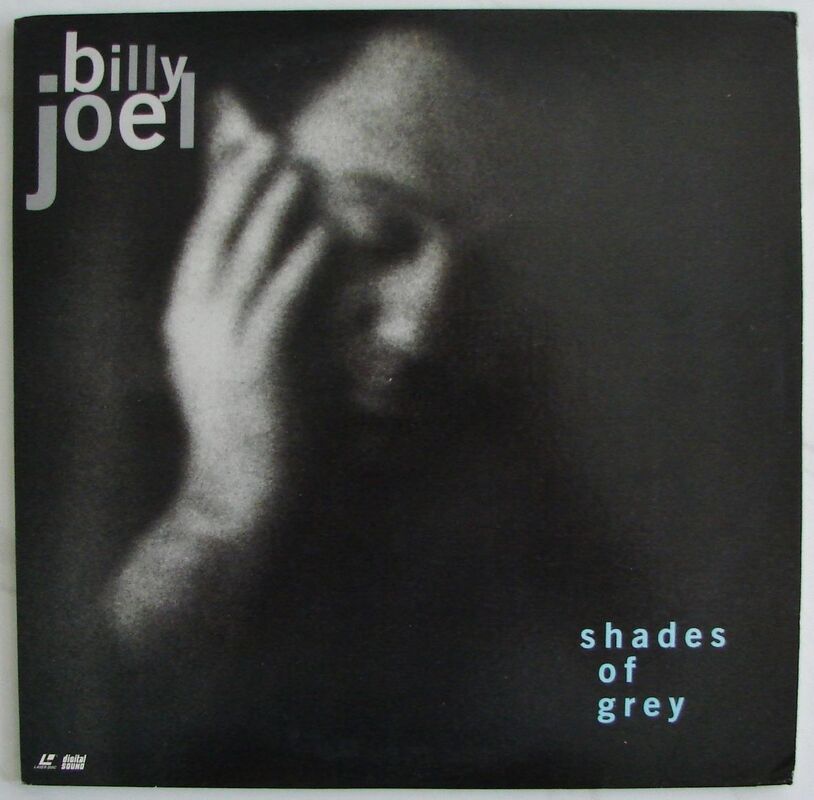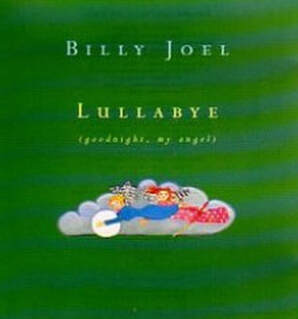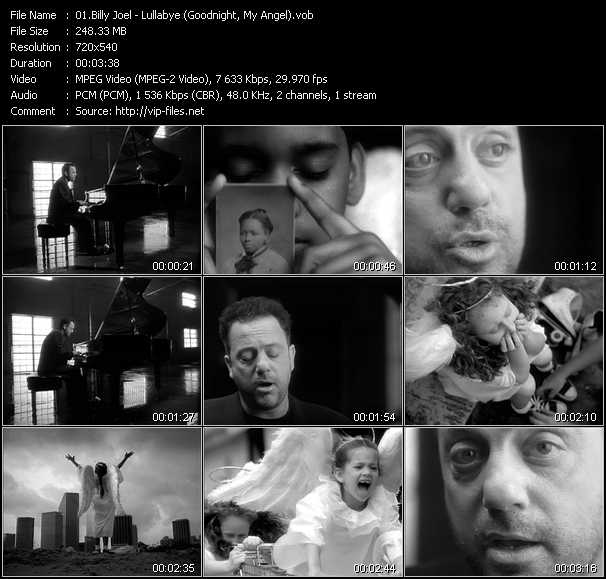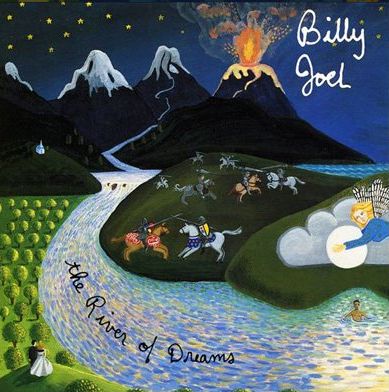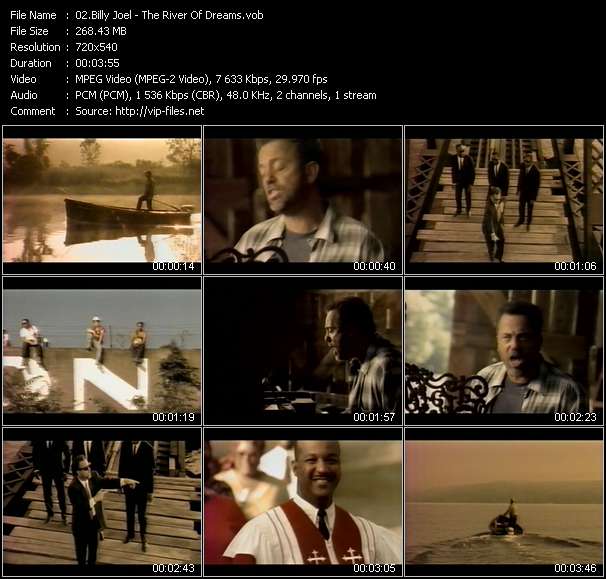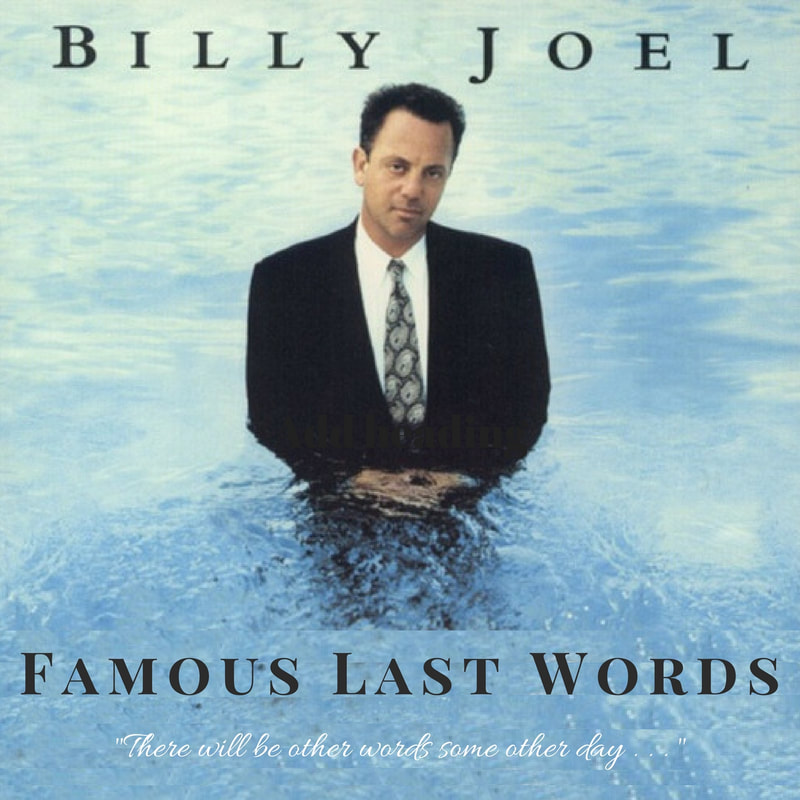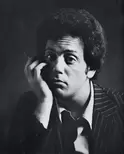|
Discussion of the Album River of Dreams
|
This article was originally available at http://www.icdc.com/~dnice/river_dreams_discussion.html. It seems to be a Columbia Records press release/publicity article for use with publicizing or commenting on the album.
|
"My music is a synthesis of all the music that I like," Billy Joel says on the occasion of the release of RIVER OF DREAMS, an album that comes at the midpoint of a career that stretches back to the 1960s and points like a compass into the next century. "I mix all kinds of things: classical, Broadway, rock 'n roll, blues, jazz, whatever's out there."
On RIVER OF DREAMS, Billy Joel and producer Danny Kortchmar (who has worked with Don Henley, Jon Bon Jovi, Stevie Nicks, Neil Young and others) assembled a group of musicians - including drummers Zachary Alford and Steve Jordan, bassists T.M. Stevens and Lonnie Hillyer, with Kortchmar and the legendary Mountain of sound Leslie West on quitars - to give the album a driving, hard-edged band-oriented sound. "It sounds like he's playing with a rock band," says Kortchmar. "It's his songs, rendered with a real fire and intensity. It's not over-thought or over-produced. Its a real straight-ahead thing. Billy's first bands were all East Coast rock bands in the style of the Young Rascals and the Vagrants and so were my first bands. We're from the same school. While parts of RIVER OF DREAMS reverberate with the energy of the Lost Souls, and The Hassles (Billy's Long Island teenage bands), the album's musical scope incorporates classically-based melody lines, two orchestral arrangements by Ira Newborn (on "Great Wall Of China" and "It's All about Soul"), and blues-based horn charts ("A Minor Variation") The genesis of RIVER OF DREAMS began in the summer '92, when Billy recorded two Elvis Presley tunes at the Church of the Sacred Heart of Jesus and Mary in Southampton for the soundtrack album of Honeymoon In Vegas. Setting up a studio on Shelter Island, Billy spent that summer through September writing and recording an early version of RIVER OF DREAMS entitled "The Shelter Island Sessions." While making these recordings, Billy formed a working relationship with Kortchmar. As the project developed, Billy wound up re-recording the songs in a various Long Island and New York studios. A restless artist who sees every new project as a challenge and opportunity for growth, Billy assembles his records as a composer would a Broadway musical. "Each album has a theme," he says. "a totality to them." And, while each of his songs is capable of standing alone as a single (and many of them have become pop music stand-ards a la George Gershwin or Cole Porter), it s in the interlocking framework of an album where Billy Joel's vision comes into the clearest focus. Like many of his other albums, RIVER OF DREAMS is a song-cycle; for Billy, the album represents a new "lyric stretch," a move into a more philosophic and sometimes dark mode of writing. While he s always drawn from personal experience and cultural observation in his writing, on RIVER OF DREAMS, Billy has been "somewhat distanced from a confessional type character," as he moves into lyrical terrain that is both personal and universal "It s the story of a person who's in a crisis," Billy says about the character inhabiting the psychological through-line of RIVER OF DREAMS. "It s obvious in the first couple of songs that it s a pretty angry person." By the end of the album --after going through a series of emotionally moving, sometimes harrowing transformations -- the character reestablishes his faith "in the things that really matter, what s really important, the things that sustain you. Opening with the straight-ahead throb of "No Man s Land," Billy traces the spiritual wasteland of commodities culture to a logical moral impasse. "The Great Wall Of China" internalizes that dilemma, ironically juxtaposing a series of gritty bar-band rock riffs against neo-psychedelic orchestral synthesizer lines; the music echoes the characters inner struggle against the forces of betrayal. Sarcastically lifting a quote from On The Waterfront, Billy s character is "grasping for things to believe in," in a seemingly impossible situation. As he gropes in the darkness of the soul for his lost values, the album's protagonist finds himself suffocating in a post-modern claustrophobia where "the TV works, but the clickers broken." In the absence of love, he reaches out for the merely sexual in "Blonde Over Blue," a song that underscores the desperation which beats right next to salvation in the heart of rock 'n roll; Billy says the music here is "like Cream meets Roy Orbison." In "Minor Variation," the character succumbs to his melancholy, admitting that, just like anybody else, sometimes he just gets the blues. "There is a particular kind of healing in just giving in sometimes," Billy says of "A Minor Variation," the pivotal song in RIVER OF DREAMS s pilgrim's progress. In "Shades Of Grey," he begins to see the black and white outlines of youthful idealism begin to blur. Things are no longer simple cases of right vs. wrong. "The guy's stopped looking for justice at this point," Billy says, "because if you're going to believe in the system of justice, the fairy tale, you re going to be constantly disappointed. You have to believe in the things that really matter, the things that are really and truly substantial. And then, in a sublime musical and lyrical turn, RIVER OF DREAMS "starts becoming spiritual at that point, it comes down to something deeper than what we understand." In the case of Billy's anti-hero, it's "All About Soul," an anthemic tune (featuring Colour Me Badd on back-up vocals) which resonates with the emotions that run much deeper than the passionate anger of the album s opening tunes. "I think the guy had to go through a certain amount of grieving and feeling the blues," Billy admits, "to see the things that were really important to him. From there, RIVER OF DREAMS flows into "Lullabye (Goodnight, My Angel)," the album's quintessential emotional moment. As "the natural overture to sleeping and dreaming," the lullabye provides an emotional comfort zone, as well as a segue to the album's primordial title track. "River of Dreams" opens with "a tribal rhythm, primitive drumming, all that tribal medicine man stuff we separated ourselves from a long time ago." The song becomes a swelling torrent of the non-sequitur images and unresolved emotional conflicts that churn in the unconscious before welling up to dissolve in the security of slumber. Billy Joel sees a river as a conduit of thought and emotion as well as something that must be crossed. RIVER OF DREAMS is a reflection of the continuum of life...raging in torrential fury at one point and moving with serene grace at another. The "River of Dreams" leads to "2000 years," the point where the album s evolving central character sees himself painted into the big canvas of history. Summing it all up, Billy Joel lifts another cinematic quote -- this time from Gone With The Wind --closing the album with "Famous Last Words," a bittersweet elegy that incorporates the metaphor of autumn, "the end of the season, the closing of the book." It s been four years since Billy Joel's Storm Front, the triple-platinum tour de force which hit #1 on Billboard s single (the incendiary cultural critique "We Didn't Start The Fire") and album charts simultaneously, received five Grammy nominations for said album and single, and launched the record-breaking 15 month Storm Front tour that put Billy in front of 4.3 million fans via 174 shows in 16 countries, including a gig in Berlin the day after German reunification, another show in the Philippines for GIs the day after Operation Desert Storm kicked in, and the first-ever rock concert at Yankee Stadium. Billy took a day off from the tour on December 5, 1990, to return home to New York for the dual honors of receiving the Humanitarian Award from the Cathedral of St. John the Divine, and the Grammy Legend Award. In 1991, he was awarded a Doctorate of Humane Letters from Fairfield University. The same year, Garth Brooks scored a #1 Country hit with Billy's "Shameless." In 1993, while working on RIVER OF DREAMS, the Berklee College of Music in Boston conferred the title Doctor of Music upon Billy Joel. Prior to (and during) the recording of RIVER OF DREAMS, Billy immersed himself in classical music, listening to Beethoven, Chopin, Debussy, Brahms, Ravel, Samuel Bar-ber and other composers. "What I was really trying to do was to break their codes," Billy says. "If you listen to something often enough, you begin to know instinctively why it goes in a particular direction. I don't know if I m essentially a rock n roll artist. I live in a stylistic no man's land. I've always believed that the beauty of American music was its ability to transcend and cross lines. For the past 25 years, Billy Joel s albums, singles, live shows and music videos have been important parts of his fans lives and of American pop history. Now, he s taking them along on his journey across the RIVER OF DREAMS. "COLUMBIA" Reg. U.S. Patent & Trademark Office Copyright Sony Music Entertainment Inc. |
